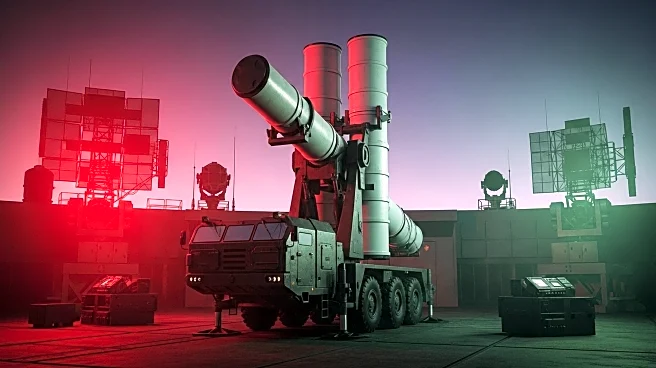What's Happening?
Israeli defense officials have expressed concerns over potential miscalculations following recent political remarks about Iran's military activities. Former Defense Minister Avigdor Lieberman warned that Iran is rapidly rebuilding its military defenses and preparing for a possible surprise attack. Despite these warnings, senior Israeli defense sources have stated there are no current intelligence indications that Iran is planning an attack on Israel. Iran is reportedly working to restore its air defense systems and revive its ballistic missile production, seeking assistance from countries like China and Russia. However, there is no evidence of Iran resuming its nuclear weapons program, which was halted after Israel's covert operations. The expulsion of International Atomic Energy Agency inspectors by Iran has left limited visibility into its nuclear activities, raising concerns about its stockpile of enriched uranium.
Why It's Important?
The situation highlights the delicate balance of power in the Middle East and the potential for misinterpretation of political rhetoric to escalate tensions. Iran's military developments, particularly its missile production and proxy network, pose strategic challenges for Israel and could impact regional stability. The lack of transparency in Iran's nuclear activities due to the expulsion of inspectors adds to the uncertainty. Israeli officials fear that political statements could be misread by Iran as signals of an impending attack, leading to preemptive actions. This underscores the importance of careful diplomatic communication to avoid unintended escalations that could affect international relations and security in the region.
What's Next?
Israeli defense officials are urging restraint in political rhetoric to prevent miscalculations that could lead to unnecessary crises. The UN Security Council is preparing to reimpose sanctions on Iran, which may influence Iran's strategic decisions. Israeli analysts believe that even if Iran's Supreme Leader decides to pursue nuclear weapons, it would take at least a year to rebuild the necessary infrastructure. The situation requires close monitoring of Iran's military activities and diplomatic efforts to ensure regional stability. The potential for misinterpretation of political statements remains a concern, and Israeli officials are advocating for cautious communication to mitigate risks.
Beyond the Headlines
The broader implications of this situation involve the ethical and strategic dimensions of military and nuclear developments in the region. The expulsion of IAEA inspectors raises questions about international oversight and accountability in nuclear activities. The reliance on proxy networks by Iran reflects a strategic approach to maintain regional influence without direct confrontation. The potential for miscalculation due to political rhetoric highlights the importance of diplomatic channels and intelligence sharing to prevent unintended conflicts. The situation also underscores the need for international cooperation to address nuclear proliferation and regional security challenges.









